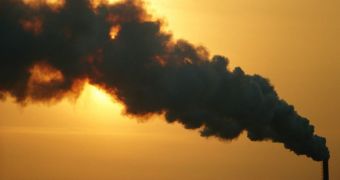In a paper published in yesterday's issue of the journal Nature Climate Change, researchers explain that, according to evidence at hand, it is possible the air quality across the globe will take a turn for the worse in the years to come.
Interestingly enough, Danile Horton with Stanford University in California, US, and fellow researchers maintain that, as surprising as this may sound, climate change and global warming will be the ones to cause this drop in global air quality.
Writing in the journal Nature Climate Change, Daniel Horton and his colleagues say that, as a result of said phenomena, so-called atmospheric stagnation events will become more frequent. Simply put, the air will not circulate as much as it currently does.
As detailed by Nature, such atmospheric stagnation events make it possible for pollutants like soot, dust, and ozone to accumulate in the air hovering over a certain region. The result is a drop in local air quality.
In it believed that, unless measures to curb emissions are implemented without delay, 55% of the world's population will be affected by an increase in the annual count for atmospheric stagnation events by the year 2099.
Apparently, evidence indicates that people living in the tropics and subtropics will be the ones hit the hardest. Specifically, it is estimated that the annual number of stagnation events documented in India, Mexico, and the Amazon will up by 40%, 19%, and 28%, respectively.
As reported, the World Health Organization considers air pollution to be a leading cause of cancer. Hence, it is to be expected that this predicted worsening of air quality across the world will translate into an increase in stroke, heart disease, lung cancer, and respiratory diseases occurrences.

 14 DAY TRIAL //
14 DAY TRIAL //